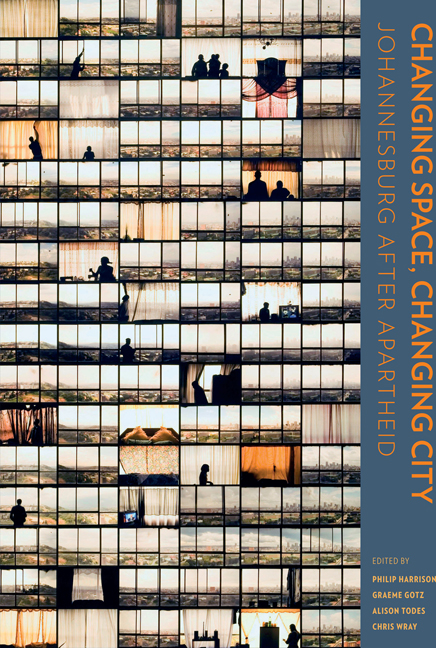Book contents
Preface
Published online by Cambridge University Press: 20 April 2018
Summary
This book is published in 2014 – the year South Africa celebrates two decades of democracy. It offers an account of complex and often bewildering transformations in Johannesburg – South Africa's premier city – since the end of apartheid. We focus on the city's physical form, but relate this to trends across the economic, political, social and cultural domains, thus attempting to bridge scholarly traditions that tend to emphasise either the ‘material’ or ‘cultural’ dimensions of the city.
Our major contribution to the already diverse and lively literature on Johannesburg is to provide a multi-layered analysis of urban change, drawing on new and updated sources of empirical data, and informed by the perspectives of a range of scholars. Our primary aim is to understand change in post-apartheid South Africa, but clearly Johannesburg's story has the potential to inform understandings of the processes shaping urban space globally.
The book is the first product of a larger initiative of engagement with change in the Gauteng city-region that includes the other major metropolitan hubs, and places that are more marginal to our spatial imaginations. The initiative is a collaborative one, involving the School of Architecture and Planning at the University of the Witwatersrand, Johannesburg and the Gauteng City-Region Observatory (GCRO), as well as contributions from many scholars across different institutions.
As the book has been a number of years in the making, we have had assistance from a range of agencies and individuals. The GCRO, the South African Research Chairs’ Initiative of the National Research Foundation and the School of Architecture and Planning provided financial and institutional support for the project. The substantive content comes, of course, from the considerable efforts and insights of the contributors, and we offer them our heartfelt thanks. We are also grateful to the anonymous reviewers who provided us with perceptive comments. Wits University Press provided professional guidance and the gentle reassurance we needed from time to time. Our sincere thanks go to the publishing team – Veronica Klipp, Roshan Cader, Mary Ralphs, Andrew Joseph and Peter Bosman. The forbearance of our colleagues in the GCRO and the School of Architecture and Planning, and of our friends and families, is deeply appreciated, thank you.
Information
- Type
- Chapter
- Information
- Changing Space, Changing CityJohannesburg after apartheid, pp. viiPublisher: Wits University PressPrint publication year: 2014
